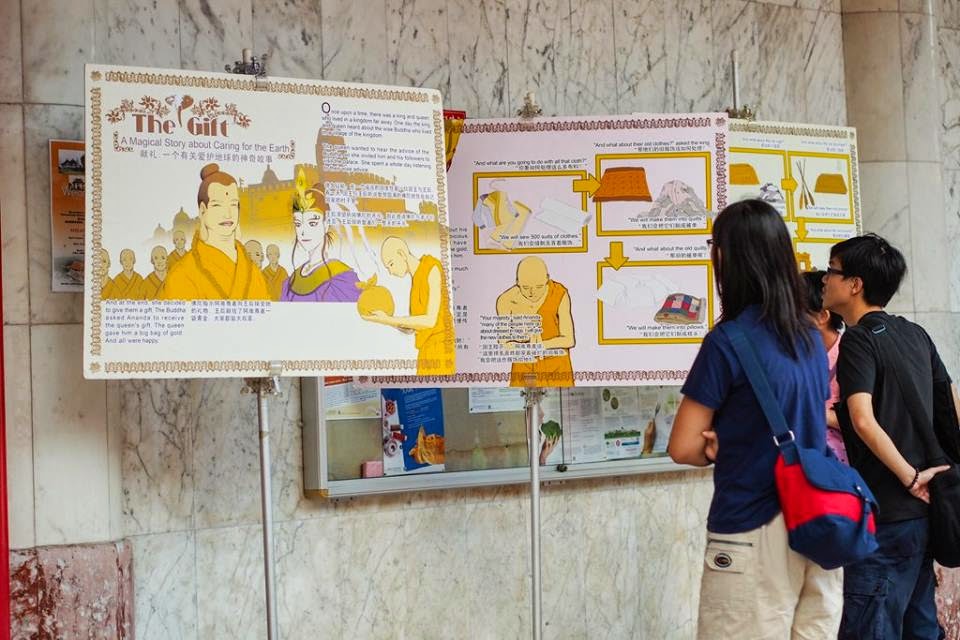I was asked to write about what would a Buddhist do in the aftermath of the Low Yat Incident a few days ago.
So here's the background for those who don't know the incident. Basically, a man stole a handphone, got caught and in that weekend, gangs of people came and smash the shop, fights broke out and also a riot, caused in no small part by someone from the gang using misunderstanding and racial slur to mobilize the mob to do such uncivilized behavior. Lucky for Malaysia, the incident has been resolved very fast and efficiently by the police, using CCTV cameras to show that the case is a theft case and the thieve called for revenge. That's it, don't bring in racial hatred and spoil the harmony in Malaysia.
And I am inclined to agree with that. Case closed, no comments. I don't need to continue anymore, don't share the ugly stuffs.
Yet, I think the real impact of the incident is online and that means in the minds of those who shared, commented, or even just read about the incident. Many are very level-headed, condemning the incident as not racial thing, but just an ugly thing. I agree. Don't need to get angry. So let's drop the Low Yat thnig and pretend you came for a Dhamma lesson.
Where's the Buddhist stuffs? Hmmm... well, back in Buddha's days there was a sort of racial separation as well. That's the caste system, separated into four caste based on birth that has no chance whatsoever to change caste (unless they join the ascetics). When there is also the untouchables, the outcaste. The Buddha had spoken out against such discrimination, using various methods and logic to show the people at that time that it does not make sense to discriminate by birth, only by deeds is one an outcaste.
There is the biological reasoning, that we are all humans with the same eyes, ears, nose, heart, brain, liver, so what is the basis for discrimination amongst humans? Biologically we are of the same capabilities. Another reasoning is that there exist virtuous and evil people in all castes, can we really discriminate and say one caste is morally inferior to another? Is it justified to use a biased preconceived notion to judge others? In any caste system, a person who had committed a crime still pays for the crime committed.
In Digha Nikaya 4, The Buddha once asked a Brahmin (a person from the highest caste): What makes a Brahmin?
The answer he got was:
- Racial caste purity documented to seven generations;
- Knowledge of the mantras (of the Vedic religion);
- Appearance;
- Virtue;
- Wisdom.
The Brahmin, Sonadanda then dropped off appearance. As it is relatively unimportant.
Then the Buddha continued, if one more quality is to be dropped, and still the person could be considered a Brahmin, which would it be?
The Brahmin, Sonadanda then dropped off knowledge of the mantras. (Note this is like dropping religion off a race association.)
The Buddha continued even more, if one more quality is to be dropped, and still the person could be considered a Brahmin, which would it be?
The Brahmin Sonadanda now said birth can be left out, for virtue is more important. Wisdom and virtue are the two mutually irreducible qualities of a Brahman. Thus, Sonadanda says, “wisdom is purified by morality, and morality by wisdom.” This combination he identifies with the highest good, and the Buddha concurs.
This was how the Buddha gradually lead the person to be trained into the right view taught by him, by self discovery and question.
This is also how you should be asking yourself. Are you affected by racial comments? Are you able to let go and be calm in all situations? Are you able to see logically and calmly what makes a good human? It's not by birth (Chinese or Malay) nor by religion, nor by appearances. Merely virtue and wisdom. In this regard, the Malaysians humans can be proud of themselves for displaying wisdom in condemning the incident and not raise it to racial riot, and the virtue to forgive and be non-violent, and letting go of anger.
Of course, even nationality boundaries are also a sort of discrimination based on birth, so I would use, as a good member of the human race, let's be continue to be wise and virtuous.







